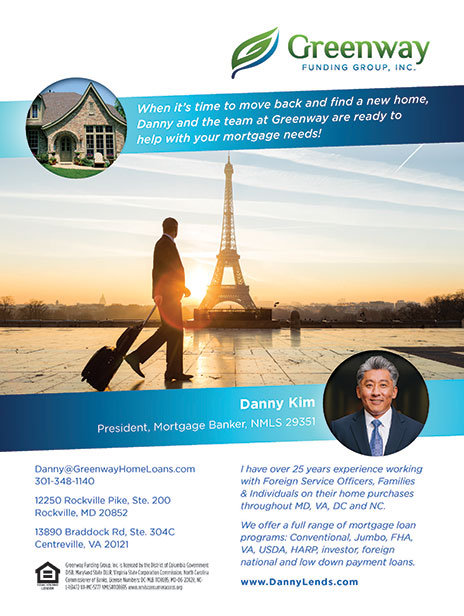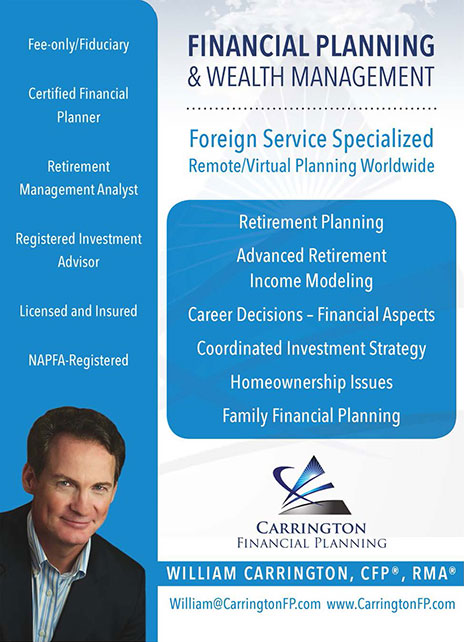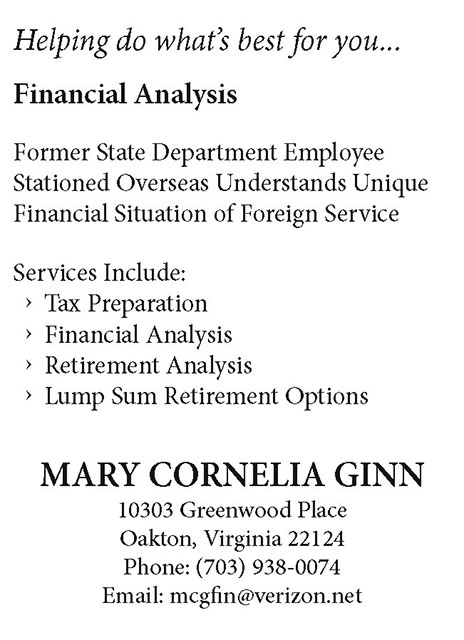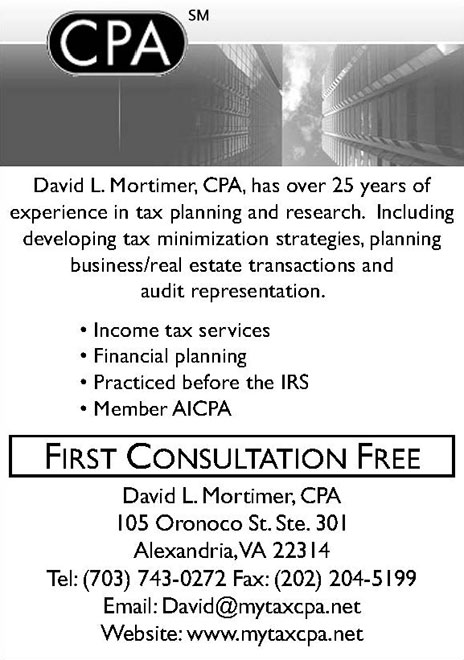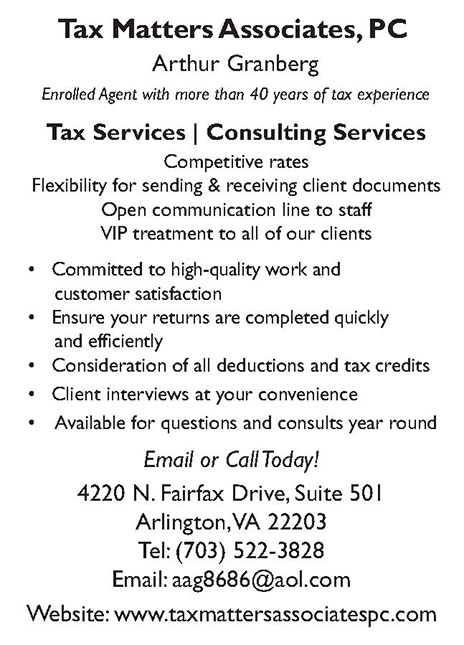Are You Retirement Ready?
Experts explain how to prepare for retirement throughout your career, from your first days on the job until you turn in your badge on the last day.
BY DONNA SCARAMASTRA GORMAN
When it comes to preparing for retirement, there are a lot of different strategies out there. One of the most common, and least useful, is the file-and-forget approach. You know this one: you sign all of the required papers when you join the Foreign Service—Thrift Savings Plan allocations! Bank accounts! Life and health insurance!—and then you jump feet first into A-100 and promptly forget what you signed. One day, a decade or so later, you start to wonder—what exactly did I sign? Am I saving enough for retirement? And where did I hide my TSP password, anyway?
It’s easy to let this happen when you’re not sure where to start. But we’ve talked to multiple financial experts, all of whom are experienced in designing retirement plans specifically for members of the Foreign Service, to figure out what you should be doing at every stage of your career, from the very first day until the last.
Here’s what they told us.
In the Beginning: New to the Foreign Service
Most people aren’t thinking about retirement on their first day on the job. But all of our experts agree that now is the time to begin taking action for a secure retirement. Thomas Cymer, the president of Opulen Financial Group, recommends that all new Foreign Service members focus first on building a solid cash reserve. He encourages his FS clients to create a budget estimating monthly expenditures and then “systematically put money aside until you have at least a six-month cushion in place.”
Patrick Beagle, owner of WealthCrest Financial Services, works almost exclusively with Foreign Service and other federal employees and members of the military. He tells clients to “maximize the Thrift Savings Plan to the greatest extent that you can” in these early years. He recommends saving no less than 10 percent of your pay in the TSP, saying that “the time value of money in these early investments has a profound impact on retirement success.”
William Carrington, a Foreign Service family member, financial planner and retirement management analyst who founded Carrington Financial Planning, advises FS members to create a written retirement plan. Additionally, he recommends that you buy a home as soon as you can. Christine Elsea Mandojana, a certified public accountant and financial planner currently posted in Barcelona with her FSO spouse, agrees that “a solid real estate investment can help diversify your overall investment portfolio, and it helps you plan for housing needs when you leave the Foreign Service.”
Be sure to consult a tax adviser if you invest in a rental property, because rental properties can create complicated federal and state tax issues. Beagle also recommends looking for housing outside the Beltway to reduce costs. And, he says, “try to hold housing costs to less than 35 percent of your income.”
You might not be making much money in those lean early years. Still, Hui-Chin Chen, a certified financial planner and Foreign Service family member who runs the website Money Matters for Globetrotters, reminds her clients that “any extra pay goes to savings.” Additionally, she says, “when you get a raise, put at least 50 percent into savings” rather than spending the extra cash.
Halfway There: What to Do in the Mid-Career Stage
This is the “decade of complexity,” says Carrington. Mid-level officers and other Foreign Service members are making more money, but they often face more expenses. Perhaps they have children and need to save for college and other related expenses. Some have gone through divorce and the accompanying financial distress. Still others have increased medical expenses, or expenses incurred caring for elderly parents.
Cymer suggests that married couples “discuss and prioritize” their goals in order to decide what expenses to prioritize. He asks his FS clients to think hard, for example, about whether paying for their children’s college is more important to them than retiring early.
Most people aren’t thinking about retirement on their first day on the job. But all of our experts agree that now is the time to begin taking action for a secure retirement.
Max out that TSP, says Mandojana, and maintain a solid emergency fund. At this point in your career, she also recommends that you review your will and life insurance needs and consider college savings if you have children. But, she warns, do not save for college at the expense of saving for retirement.
Hui-Chin Chen recommends making “a household financial plan to give your savings purpose and strategize your investments.” She also says that now is the time to “develop networks and skills for careers or income potential after the Foreign Service and outside the federal government.”
Twenty Years In: Ready to Retire?
“Remember that retirement eligible does not mean ready,” says Beagle. “Just because you can, doesn’t mean you should.” Before you make a move, you need to “take stock of investing success, future job prospects, retirement goals and family demands.”
At this stage of the game, it’s time to re-evaluate your goals. If you’ve been through a divorce, asks Cymer, how is the loss of income and assets going to affect you? If you have children who live elsewhere, you need to think about where you’d ideally like to retire. It’s a good time, too, to check in on your spending—have you accumulated enough to slow down on savings or start a second career?
“Most FSOs are in the ‘golden handcuffs’ at this point,” warns Carrington, adding, “leaving the FS is simply not an option.” And if you’ve gone through a divorce or other financial calamity since joining the Foreign Service, you’ll need “five to 10 additional working years to recover a pre-divorce standard of living.”
Mandojana urges her clients to take tax planning seriously at this point, because “a mix of assets, higher salary and life complications such as college and/or divorce can create opportunities and pitfalls that need careful planning.” She recommends that you maintain an annual spending and saving budget and an estimated retirement budget. Check annually if you are on target to meet your retirement goals, and make adjustments as needed.
Going Beyond 20
Can you really leave the Foreign Service when you hit 20 years of service? Should you?
There are actually quite a few benefits to staying on after you reach the 20-year milestone. According to Carrington, your pension will continue to increase by 1 percent per year, meaning TSP contributions can add $30,000 in new money each year. “Very few FSOs seriously consider leaving after 20 years, in my experience,” he says, “unless they are over 60 or have some special circumstance.”
Mid-career is the time to develop networks and skills for careers or income potential after the Foreign Service and outside the federal government.
“There is credit for additional years of service past 20, and the high-three salary will likely increase, as well,” says Beagle. “Face it: you likely have the best paying job you will ever have. Don’t leave until the goals you have are met, or until you have a follow-on plan to do so.”
Thomas Cymer tends to disagree. “There are certainly benefits that will continue to accrue, but depending on the person’s life priorities, it may be time to put their expertise to use in a different arena. With 20-plus years of experience, a person could potentially land a higher-paying private-sector job. So at this point it’s time to do a goal check-in, and see where you want life to take you next. ”
Whatever you decide to do, Mandojana wants you to understand that “there are ongoing discussions on possible changes to government retirement systems,” and all FS members need to stay fully informed of those developments.
The Life of Leisure
Congratulations! You made it to the end of your FS career: You turned in your badge, and you’re ready for whatever comes next. Not so fast, though: You still need a plan. Many people splurge on big-ticket items right after they retire, but Beagle suggests avoiding overspending. “The safe withdrawal rate from your investments is about 4 percent of the balance a year,” he says. “Spending beyond what you get from your annuity and 4 percent of the balance can potentially cause plan failure.”
It’s also important, says Cymer, to monitor your investment allocations and make sure you have a distribution plan in place. Folks in retirement need to focus on keeping as much in their pockets as possible, looking at how to continually minimize taxes and making sure they aren’t being too aggressive with their retirement funds.”
But remember what you worked for, says Carrington, and “don’t live an unnecessarily constrained life.” Many FS members have more flexibility than they think. “If you have a pension, Social Security, TSP and a paid-off mortgage,” he says, “you are golden.” Consult a professional and work out a cash flow and spending plan so you know what you can comfortably afford to do.
Now is the time to update your will and medical care directives, advises Mandojana. “Be sure your financial plans include end-of-life care plans, such as a nursing home, in-home care, etc. Be sure you have a plan in place of who will take care of your financial responsibilities when you are no longer able to do it yourself,” she says.
What about Family Members?
This is all useful information—if you’re the employee. But what should family members be doing to prepare for retirement? Many have sketchy work histories and no TSP of their own. Most of our experts recommend that spouses find some sort of employment at every post to ensure their family’s financial security.
“With today’s technology we can be connected to each other while we are virtually anywhere on the planet,” says Cymer. “Look for a flexible position that allows for working remotely. Some of the more creative jobs my work-from-home clients have had included things like transcribing services, coding, web design and social media marketing.”
At the 20-year point it’s time to do a goal check-in, and see where you want life to take you next.
“I meet with couples all the time where the spouse has little to no Social Security or pension,” says Beagle. “The bottom line: work if you can. Find those skill sets that can work remotely.” Beagle’s FS spouse clients have skills that include transcription, editing, physical therapy and computer support. “Think of skills that you can transfer anywhere and be self-employed or remotely employed,” he recommends. “Then bank more than half of that pay.”
Carrington adds that spouses need to maintain their own financial identity, and keep credit cards and checking accounts in their name.
Look for a need and find a job or start a business to fill that need, says Mandojana: “Be creative and persevere. If you aren’t concerned about working, then enjoy the adventure—but be sure to save for retirement, too!”
Take Action
It’s a complicated topic, but don’t put off thinking about, and planning for, your future retirement. If you haven’t started saving yet, start today. Not saving early in your career is the biggest mistake you can make. FS members “need to understand that paying themselves first (by saving 10 percent in the TSP) is an imperative, not an alternative,” says Beagle. “I see many who failed at this and cannot retire as a result.”
But don’t let your TSP savings lull you into complacency. “Count the huge blessing you have in the pension system,” says Beagle. “More than 85 percent of Americans have no pension plan.” It’s a great start, he says, but it isn’t enough. FS members “often make the mistake of thinking that the pension will suffice in retirement. It will not.”
Plan for your future: Start a separate account to save for a house. Write down your short- and long-term goals. Track your day-to-day spending. Talk to a tax adviser or financial planner who can help you build a realistic plan.
Yes, you’re busy at work. And at the end of the day, you have gym buddies to meet, children to ferry around town, laundry to be done, work functions to attend. But don’t let today’s roadblocks keep you off the path to a comfortable retirement.
Making Ends Meet in Washington, D.C.
Save as much as you can, and then save a little more. You know what you need to do, but how do you save anything at all when you’re posted to D.C. and just trying to make ends meet?
Chris Cortese, a retired Foreign Service officer and founder of Logbook Financial Planning, advises his clients to estimate their cash flow before returning to Washington, D.C. “Coming back to D.C. is going to require some changes,” says Cortese, because you will suddenly add rent, electricity, water, sewer, homeowner’s insurance and other big-ticket items to the budget.
Software programs like Mint or You Need a Budget can help you get started. “Start with taxes, fixed expenses and a minimum of 5 percent into the TSP,” Cortese says. Then look at the variable expense side, and ask: Are there items I can eliminate or reduce to continue to fund the TSP at a higher level?
As a former FSO and father of four, Cortese has plenty of ideas for cutting expenses. He suggests trying to live with just one car and finding alternative ways to commute. If you have homeowner’s insurance, consider raising your deductible or bundling your coverage with your auto insurance. Food, he notes, can be “a budget breaker.” For families, he suggests using a credit card that gives cash back on groceries.
For example, he says the American Express Blue Cash Preferred gives back six percent on groceries for the first $6,000; after their $95 dollar fee, this nets $265, which he calls “the easiest $22 a month in grocery coupons I don’t have to clip.” He also wants you to download your preferred grocery store app and, of course, brown-bag to work.
To cut phone expenses, says Cortese, look at companies such as Total Wireless or Tracfone, which “use the big networks, but usually are 50 percent cheaper.” Entertainment? “Time to enjoy all the free offerings in D.C. and Northern Virginia, along with the great public libraries,” he says. Instead of a gym membership, his family uses online videos to work out. For clothing, he says, “the average American only wears 20 percent of their clothes,” so institute a “something in, something out policy” to cut down on impulse clothing purchases.
Cut the cable cord and read more, he advises. And finally, “a D.C. assignment is the perfect time to teach the kids about energy conservation.”
Other ways to make ends meet?
Save as much as possible in an emergency fund while you are posted outside the United States, so you have a cash cushion while in D.C.
Don’t think of TSP contributions as optional. Continue to contribute as much as you can—because it is automatically withdrawn before you receive your paycheck, you shouldn’t miss it much.
FS spouses should look for employment. “If there is any city where it pays for the spouse to work,” says WealthCrest’s Patrick Beagle, “a high-cost area is it, because it also likely means higher wages for workers.”
Finally, know what is coming your way. Take a deep breath, says William Carrington of Carrington Financial Planning, and “accept that money will be tight if you have just one income. Expect to burn through much of your cash reserves.” And, he says, whatever you do, don’t go into debt.
—Donna Gorman




